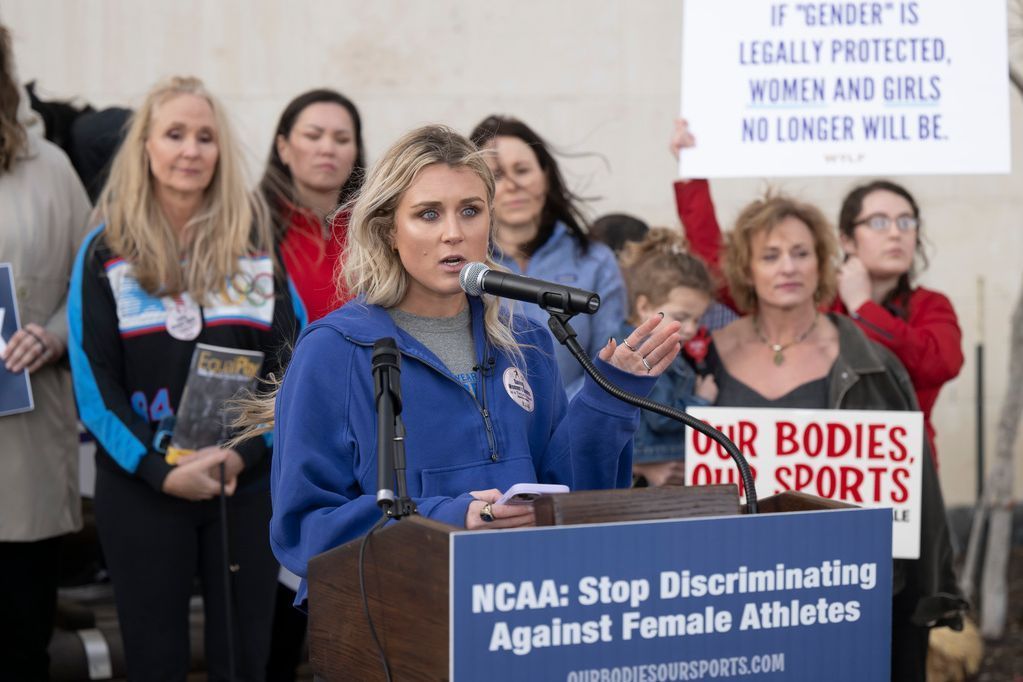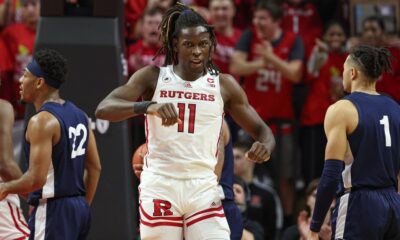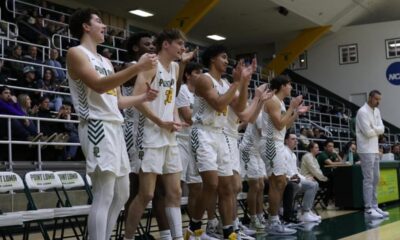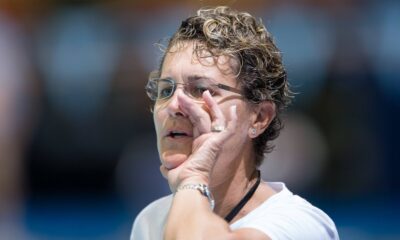
SAN ANTONIO — Former Kentucky swimmer Riley Gaines and about 20 demonstrators outside an NCAA convention Thursday protested the inclusion of transgender athletes in women’s sports, calling for a change in policy unless the law changes. threatened the association with legal action.
Gaines faced Penn’s Leah Thomas, the first transgender woman to win a national title (women’s 500-yard freestyle), at last year’s NCAA Swimming and Diving Championships. She also finished fifth in the 200 Freestyle, tied with Gaines.
“Today, I will personally tell the NCAA to stop discriminating against female athletes by handing them a petition that has gathered nearly 10,000 signatures in just a few days,” Gaines said. , launched a speech that lasted more than an hour. A few bystanders and a few silent rebels.
The topic has been divided within the United States for the past few years, with criticism that transgender athletes have a competitive advantage over cisgender women. Eighteen states have passed laws banning transgender athletes from participating in girls’ school sports. A federal judge ruled earlier this month that West Virginia’s ban is constitutional and can be left in place.
The NCAA has allowed transgender athletes to compete since 2010.
The Transgender Student-Athlete Engagement Policy was updated a year ago to take a sport-by-sport approach that aligns the NCAA with the U.S. and International Olympic Committees.
Full implementation of the policy was scheduled to be phased in by August, but the NCAA board this week recommended delaying it until the 2023-24 school year “to address operational considerations.” approved.
NCAA leadership has said the goal of policymaking is “how to include transgender athletes, not whether to include them.”
“We want a fair, welcoming and inclusive environment for all. [the athletes],” Ivy League Executive Director Robin Harris said at a conference during this week’s session on the topic. Harris said the transgender athlete policy is no different than other eligibility requirements.
“They’re playing by the rules,” NCAA inclusion director Gene Merrill said during the session.
Skylar Beiler, a transgender man who switched from the women’s swim team to the men’s swim team while at Harvard University, said he believes the NCAA is best at inclusive, fair and effective policies . The problem is that standards are not static.
“It’s not simple. I think they are always moving, they are always evolving, and equity is also always evolving. It gives us a better understanding of gender and inclusiveness,” says Beiler. said in a conference session.
At the protest, Alliance Defending Freedom attorney Christiana Kiefer said the NCAA had violated Title IX, a landmark gender equality law enacted in 1972, and that legal action against the NCAA could take several forms. said it could be taken.
“So I think it looks like a federal lawsuit against the NCAA,” she said. “I think it looks like a Title IX complaint. If we fail to do so, you will bind our hands and not allow us to fulfill our legal obligations to the female athletes at our school.”
The NCAA has yet to take a position on states banning transgender athletes from participating in women’s sports. The NCAA previously banned states from hosting championship events because of laws they believed used Confederate symbols and discriminated against LGBTQ people.
Bailar said it would be worthwhile for the NCAA to take a similar position on the issue.
“I also know that the NCAA’s jurisdiction is college track and field, not children’s sports. And a lot of these laws are about children’s sports, so I understand the conflict there.” He said, “But if you ask me if I want more support for transgender people, the answer is absolutely yes.”















